5 Best Leadership Practices for Driving Gender Equity
Eva Rosa Santos, the founder of Female Leadership Angola, keeps the fingers on the pulse of Leadership, Inclusion, Diversity and Gender Equity: "On May 30th, 2024, we made history with the inaugural Forum on Female Leadership, Diversity, and Inclusion in Luanda, Angola, bringing together 200 champions of gender equity from various industries." This remarkable event ignited crucial discussions and inspired actionable strategies for driving gender equity.
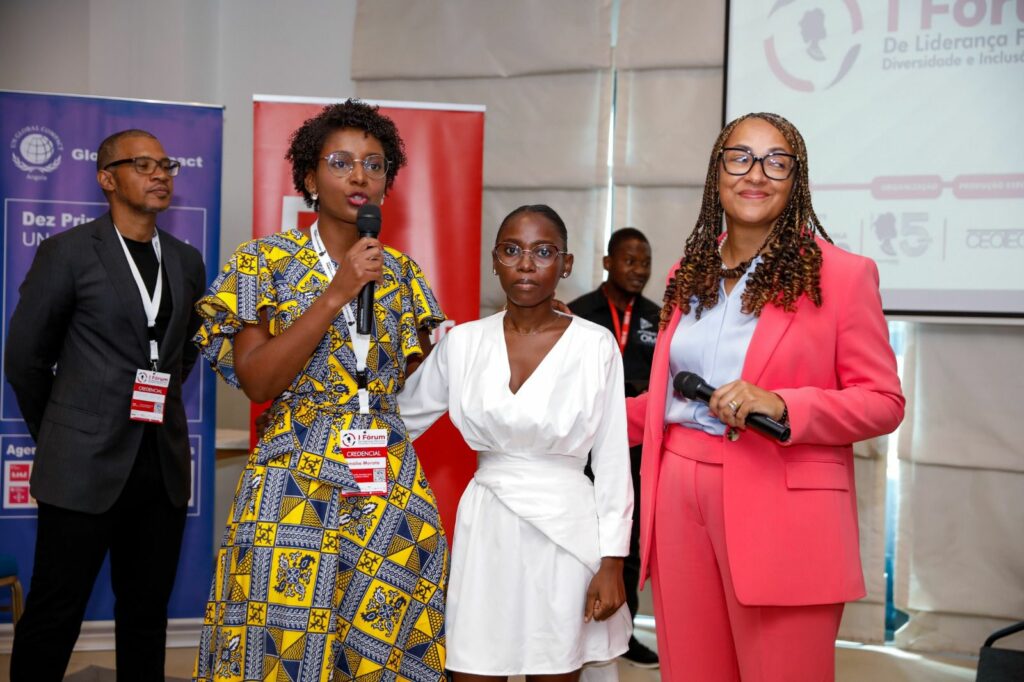
On May 30th, 2024, we proudly hosted the inaugural Forum on Female Leadership, Diversity, and Inclusion in Luanda, Angola. This event brought together nearly 200 leaders from various industries to discuss and advance the critical issue of gender equity. This was a great opportunity for leading members of the Angolan society to explore new practical insights and inspire new strategic actions, emphasizing the proactive role of leadership driving gender diversity within organizations.
Key Insights
The forum focused on the critical need for proactive measures to enhance organizational diversity. While recognizing the complexity and duration of this unique experience, the discussions, roundtables and workshops— leadership experts shared their experiences and best practices, enriching the dialogue with their insights and covering the main topics:
- “Promoting Gender Equality in Companies: Challenges and Strategies”
- “Establishing Inclusive Corporate Cultures: Encouraging a Positive and Diverse Workplace”—offered valuable insights from experts sharing best practices.
Short-Term Benefits
Implementing inclusive practices yields immediate benefits, creating harmonious and productive work environments. Diverse teams, bringing together varied perspectives, tend to be more innovative and creative, enhancing problem-solving capabilities. Companies embracing inclusion witness increased employee satisfaction and loyalty, reduced turnover and improved operational efficiency.
Economic Advantages
Inclusion and diversity are not only socially beneficial but also economically advantageous. Companies with greater gender diversity outperform financially and exhibit higher innovation capacities. Women leaders in decision-making roles introduce diverse perspectives essential for addressing complex issues and bolstering global competitiveness.
Making History with Strategic Initiative in Angola
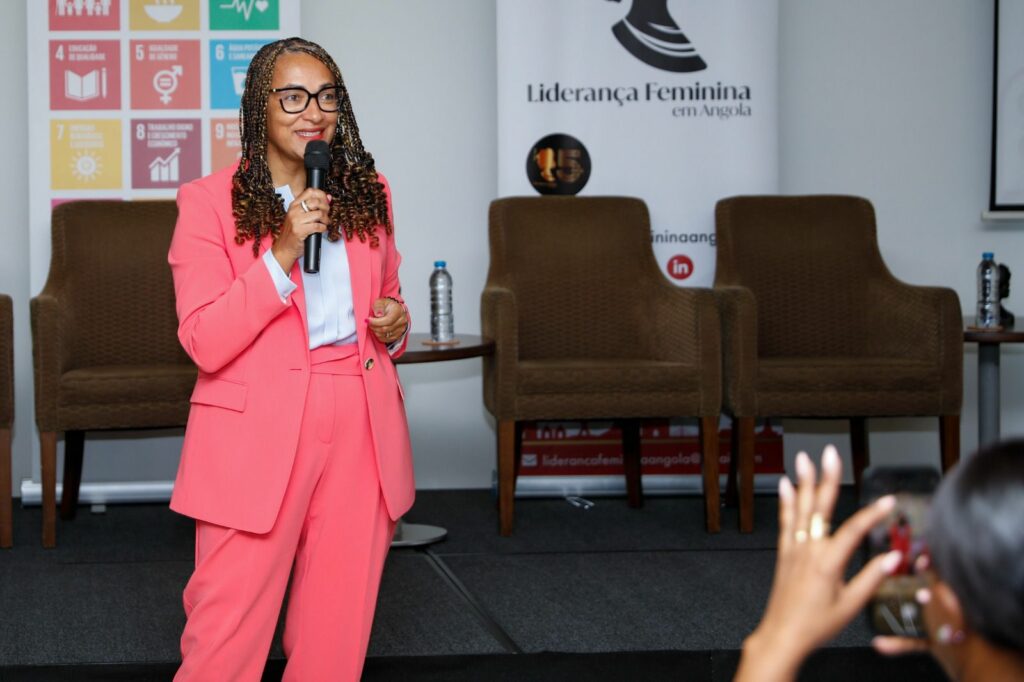
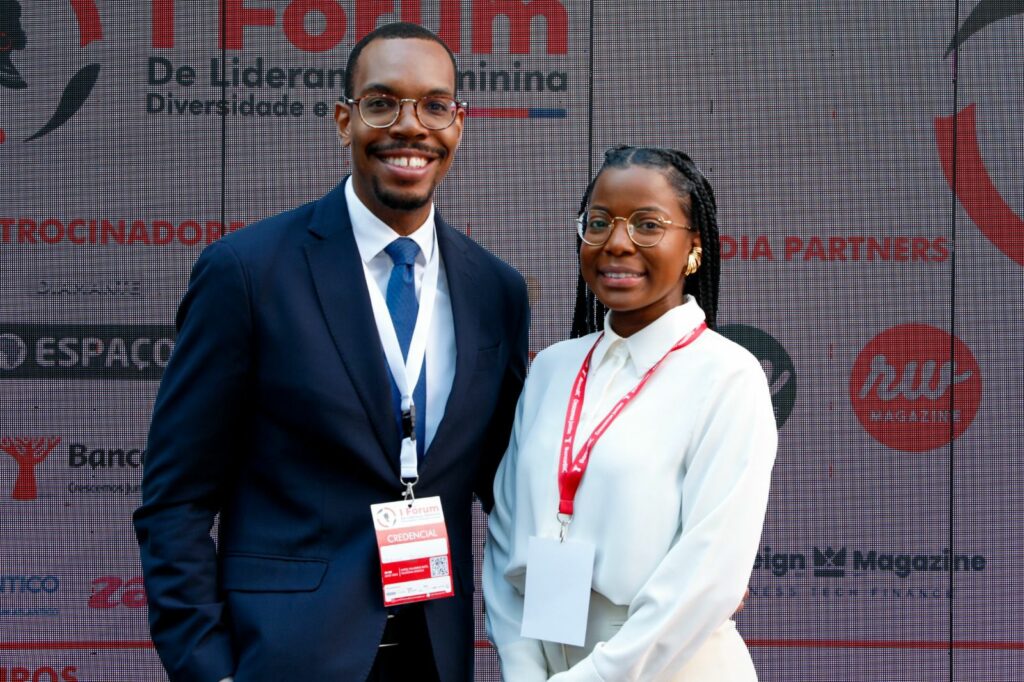
Strategic Initiative
The “Female Leadership, Diversity, and Inclusion” initiative is a call to action for Angolan companies to critically reassess their existing practices and adopt decisive measures to advance gender equality and inclusion within their organizations. This initiative is not merely a response to societal demands but a strategic approach to building a more equitable and productive business environment. By championing gender equity, companies can drive significant positive changes that extend beyond their immediate operations, influencing broader societal norms and expectations.
Promoting Societal Fairness
By engaging in the “Female Leadership, Diversity, and Inclusion” initiative, companies commit to fostering an inclusive culture that values and respects diversity. This involves creating an environment where all employees, regardless of gender, feel valued and have equal opportunities for advancement. Promoting societal fairness through workplace policies and practices helps to bridge the gender gap, providing women with greater access to leadership roles and decision-making positions. As companies model these equitable practices, they set a standard for other organizations and sectors, contributing to a broader societal shift towards gender equality.
Ensuring Sustainable Business Success
Embracing diversity and inclusion is not only a moral imperative but also a business strategy that enhances long-term success. Diverse teams bring a wealth of perspectives, driving innovation and creativity. Companies with inclusive cultures are better positioned to understand and meet the needs of a diverse customer base, leading to increased customer satisfaction and loyalty. Furthermore, organizations that prioritize gender equity are more attractive to top talent, reducing recruitment costs and turnover rates. By committing to these principles, companies can ensure sustainable growth and maintain a competitive edge in the global market.
Actionable Steps for Companies
To support the goals of the “Female Leadership, Diversity, and Inclusion” initiative, companies should consider the following actionable steps:
- Conduct Comprehensive Audits: Assess current practices and policies to identify areas where gender disparities exist. This includes evaluating hiring processes, pay equity, promotion criteria, and workplace culture.
- Develop Inclusive Policies: Implement policies that promote work-life balance, such as flexible working hours and parental leave. Ensure these policies are accessible and communicated to all employees.
- Foster an Inclusive Culture: Create a culture of inclusion through regular diversity training and awareness programs. Encourage open dialogue about diversity and inclusion issues and celebrate achievements in these areas.
- Set and Track Diversity Goals: Establish clear, measurable diversity goals and track progress regularly. Publicly report on these goals to maintain transparency and accountability.
- Empower Women Leaders: Provide leadership development programs and mentorship opportunities specifically designed to support women in advancing their careers. Recognize and address any barriers that women may face in the workplace.
- Engage Stakeholders: Involve all levels of the organization, from top executives to entry-level employees, in diversity and inclusion initiatives. Engage external stakeholders, such as customers and community organizations, to support and amplify these efforts.
By taking these steps, Angolan companies can align themselves with the “Female Leadership, Diversity, and Inclusion” initiative, leading the way in creating equitable workplaces that benefit both society and business.
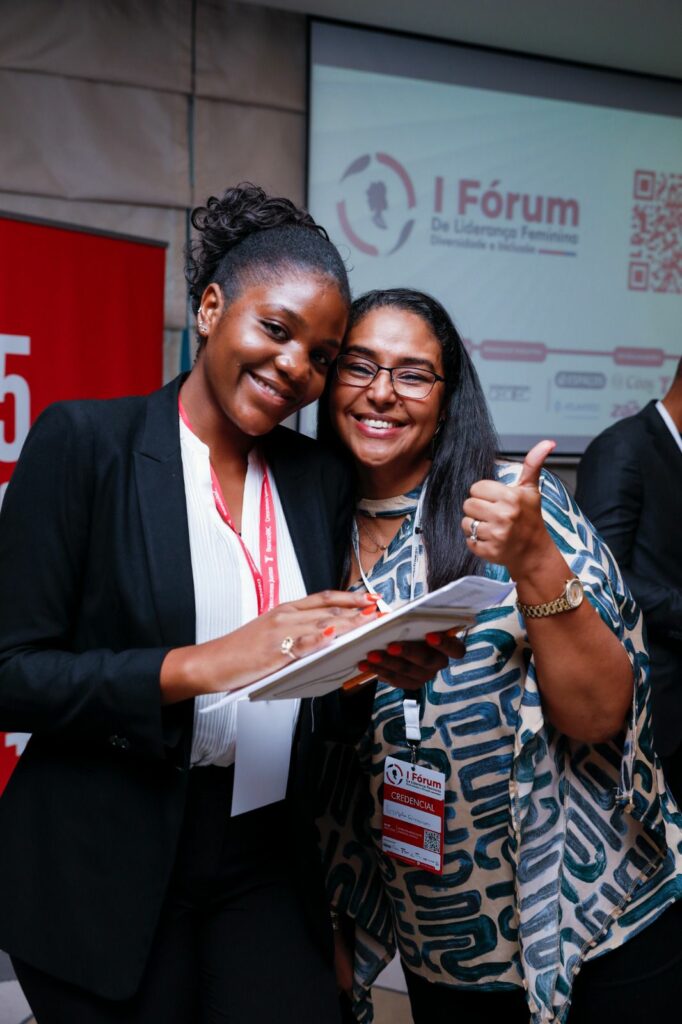
This commitment to gender equity will not only enhance the reputation and performance of individual companies but also contribute to a more just and prosperous Angola. The “Female Leadership, Diversity and Inclusion” initiative is a call to action for Angolan companies to reassess their practices and adopt decisive steps towards equality and inclusion. These actions promote societal fairness and ensure sustainable business success.
Best Leadership Practices Recommendations
With a commitment to transforming the Angolan business landscape, the Forum on Female Leadership, Diversity and Inclusion in Luanda, Angola aims to set a new standard of excellence and equality, inspiring other organisations to follow suit. Here are the 5 best leadership practices discussed during the Inaugural Forum:
Develop Mentorship Programs:
Establish programs pairing emerging female leaders with experienced mentors to provide guidance, support and career development opportunities. Establishing mentorship programs is a cornerstone for nurturing female leadership. These programs should pair emerging female leaders with experienced mentors who can provide invaluable guidance, support, and career development opportunities.
Mentorship can help women navigate organizational hierarchies, build critical skills, and gain the confidence needed for leadership roles. Effective mentorship programs include regular one-on-one meetings, career planning sessions, and opportunities for mentees to shadow their mentors. Additionally, organizations should facilitate mentorship training to ensure mentors are well-equipped to offer constructive feedback and support.
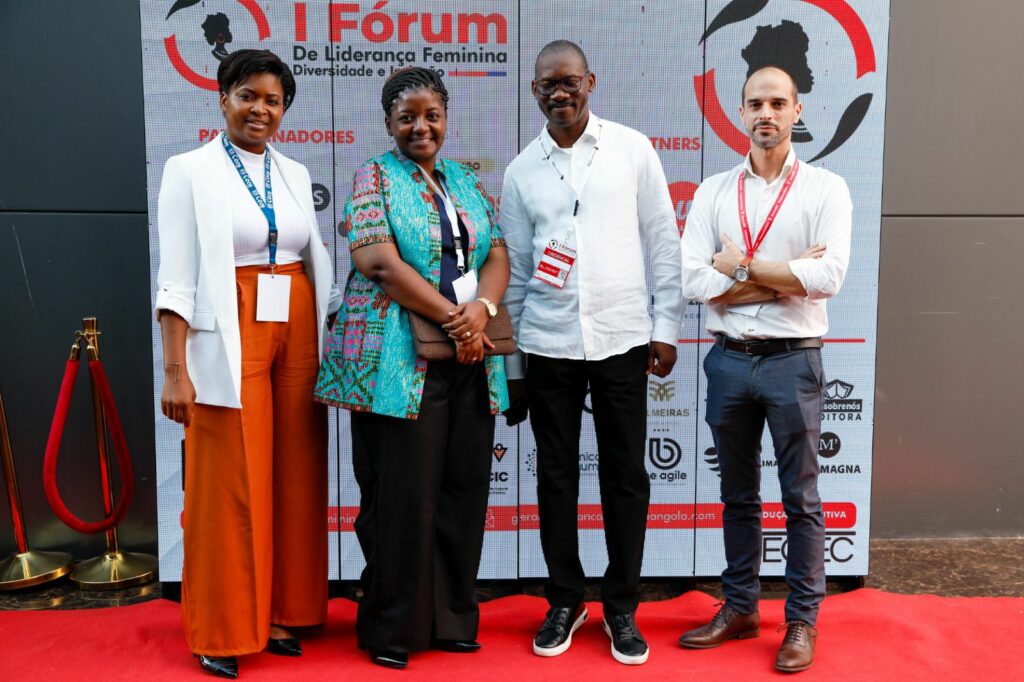
Implement Flexible Work Policies
Introduce flexible working hours and remote work options to accommodate diverse needs, fostering better work-life balance and enabling women to excel in their careers.
Introducing flexible working hours and remote work options is essential for accommodating diverse employee needs, fostering a better work-life balance, and enabling women to thrive in their careers. Flexible work policies can include options such as telecommuting, compressed workweeks, and flexible start and end times.
By offering these options, companies can help employees manage their personal and professional responsibilities more effectively. This approach not only supports women who often bear a disproportionate share of caregiving responsibilities but also attracts a broader talent pool. Clear communication and technology support are crucial to ensure the success of flexible work policies.
Conduct Regular Diversity Training
Provide ongoing diversity and inclusion training for all employees to raise awareness, mitigate biases, and cultivate a more inclusive workplace culture.
Providing ongoing diversity and inclusion training for all employees is critical to raising awareness, reducing biases, and fostering a more inclusive workplace culture. Diversity training programs should cover topics such as unconscious bias, cultural competence, and inclusive communication.
These sessions should be interactive, involving scenarios and role-playing to help employees understand and practice inclusive behaviors. Regular assessments and feedback mechanisms can help organizations measure the effectiveness of these trainings and make necessary adjustments. Leadership should also participate in these programs to demonstrate commitment and model inclusive behaviors.
Set Diversity Goals
Define clear diversity and inclusion objectives, regularly track progress, and hold leadership accountable for achieving these goals.
Defining clear diversity and inclusion objectives is essential for making tangible progress. Organizations should set specific, measurable, achievable, relevant, and time-bound (SMART) diversity goals. These goals could include targets for gender representation at various levels of the organization, diversity in hiring and promotions, and employee engagement in inclusion initiatives.
Regularly tracking progress towards these goals and publicly reporting on them can enhance accountability and transparency. Leadership must be held accountable for meeting these objectives, integrating diversity metrics into performance evaluations and incentive structures.
Create Inclusive Recruitment Processes
Ensure recruitment and promotion processes are unbiased and inclusive by utilizing diverse hiring panels, standardizing interview questions, and actively seeking diverse candidates.
Ensuring that recruitment and promotion processes are unbiased and inclusive is vital for attracting and retaining diverse talent. Organizations should use diverse hiring panels to mitigate unconscious bias and ensure a variety of perspectives during the selection process. Standardizing interview questions and evaluation criteria can help create a level playing field for all candidates.
Additionally, actively seeking diverse candidates through targeted outreach and partnerships with organizations that support underrepresented groups can enhance diversity in the candidate pool. Continuous review and improvement of these processes are necessary to identify and address any barriers to inclusivity.
Transformational Impact
Committed to transforming the Angolan business landscape, this initiative aspires to establish a new standard of excellence and equality, inspiring other organizations to follow suit.
Female Leadership Angola
Founded in 2019, Female Leadership Angola is dedicated to promoting gender equality and women’s empowerment, crucial for economic and social growth. Through mentorship, coaching and leadership development, the organization enhances female representation in leadership roles, emphasizing integrity and trust. As a member of the UN Global Compact since January 8th, 2024, and adhering to the 5th Sustainable Development Goal, Female Leadership Angola plays a pivotal role in fostering constructive dialogue between genders, aiming to transform Angolan society.
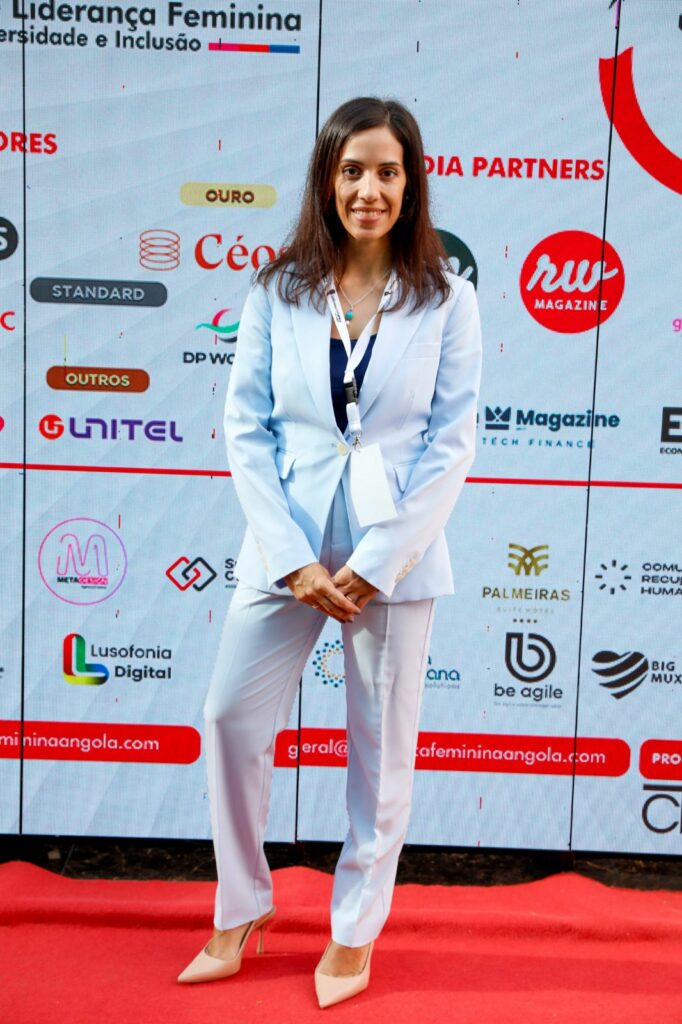
Media Partnership
Rich Woman Magazine served as the media partner for this landmark event, amplifying the initiative’s message and supporting the mission to create a more equitable and inclusive future. This experience highlights the significance of proactive leadership in driving gender equity, demonstrating how strategic actions can foster diverse and inclusive corporate environments, yielding both social and economic benefits.
About Eva Rosa Santos
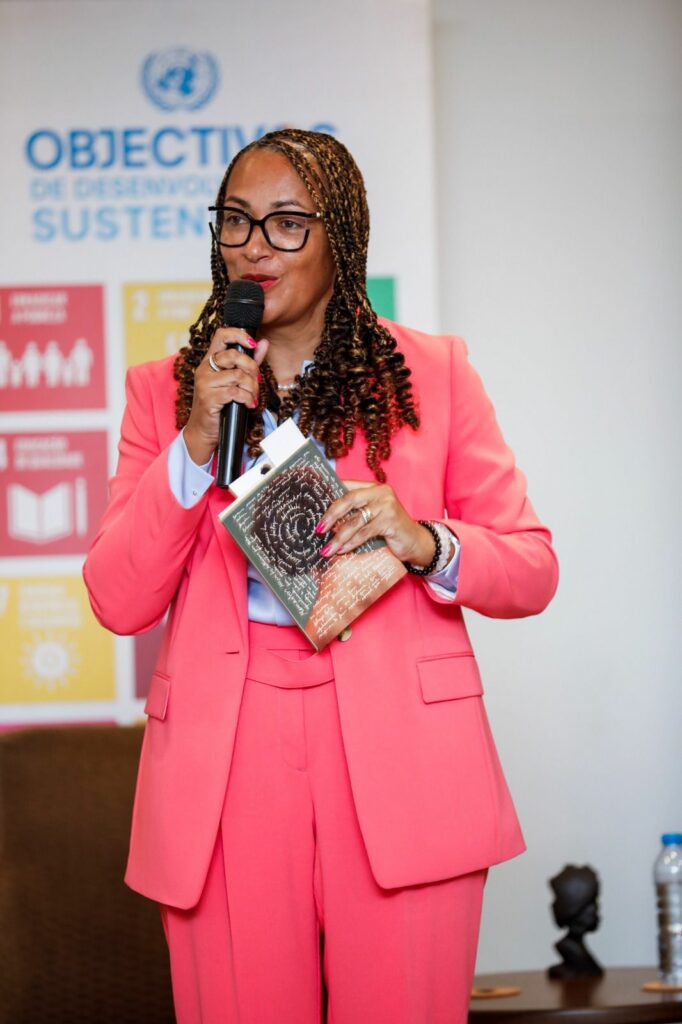
Eva Rosa Santos founded Female Leadership Angola to promoting gender equality and women’s empowerment for economic and social growth. After five years of dedication and remarkable commitment to female leadership development, the organisation enhances female representation in leadership roles, emphasising the importance of integrity and trust. The driving force behind adhering to the 5th Sustainable Development Goal, Eva Rosa Santos is determine to put Female Leadership Angola on the map for generations to come.
Do you want to share your story and inspire our readers ? Know that YOUR EXPERTISE is paving the way for a brighter, happier future.





